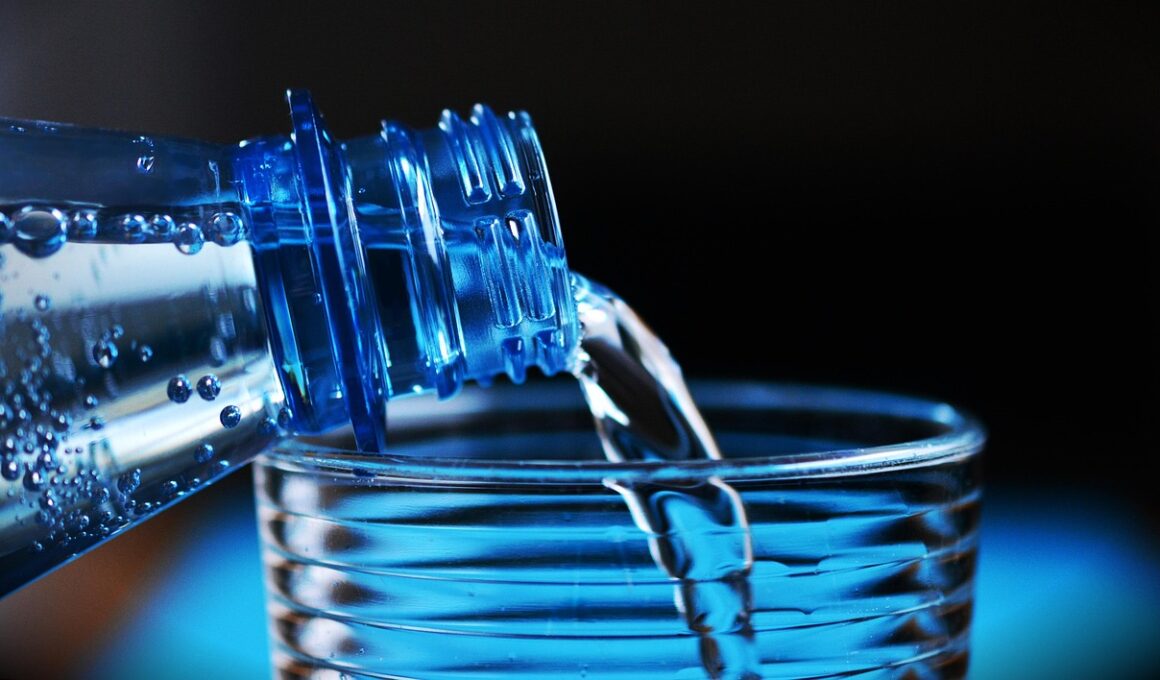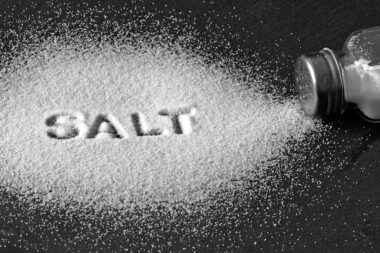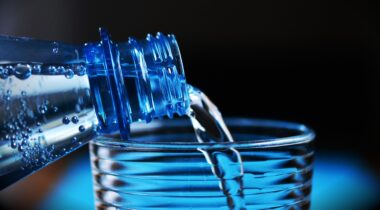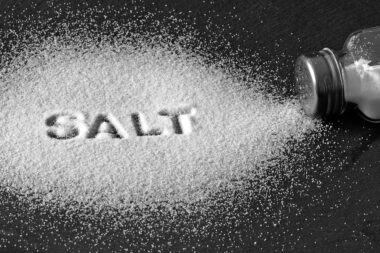Tips to Improve Kidney Health Through Proper Hydration
Staying hydrated is crucial for maintaining kidney health and promoting optimal kidney function. The kidneys play a vital role in filtering waste products and excess substances from the bloodstream, which is a process heavily dependent on water intake. Adequate hydration helps the kidneys produce urine, allowing them to successfully eliminate toxins and prevent urinary tract infections. Inadequate fluid intake can lead to dehydration, which may impose higher stress on the kidneys, potentially resulting in kidney stones and other complications. To maintain proper hydration, consider the following strategies: First, drink water throughout the day, even when you are not thirsty. Second, keep a bottle handy to encourage regular consumption. Third, incorporate foods with high water content, like cucumbers and oranges, into your diet. Fourth, monitor your urine color; pale yellow indicates good hydration, while dark yellow can signal dehydration. Lastly, limit diuretics like caffeine and alcohol, as they may lead to increased fluid loss. By adhering to these practices, you can enhance your kidney health while ensuring that your body remains well-hydrated and functioning efficiently.
Understanding the importance of kidney function is essential for recognizing how hydration influences overall health. Kidneys, each roughly the size of a fist, are complex organs responsible for filtering about 50 gallons of blood daily. Thus, maintaining their health involves understanding why hydration is crucial. Kidneys remove excess waste, regulate electrolytes, and balance bodily fluids. Proper hydration aids these processes by thinning the blood, enabling kidneys to efficiently filter impurities. Insufficient water consumption can result in urine concentration, increasing the risk of developing kidney stones or urinary infections. Aim to drink at least eight 8-ounce glasses of water daily, commonly known as the “8×8 rule,” or adjust based on individual needs, such as activity levels and climate. Including water-rich fruits and vegetables, such as tomatoes and strawberries, can contribute to hydration. If you’re active, consider consuming electrolytes to replace lost minerals. It’s essential to have a sensible approach to hydration that suits your lifestyle, age, and health conditions. Consult your physician if unsure about the right amount of water for your needs. Staying well-hydrated greatly benefits kidney function and overall well-being.
Incorporating a variety of beverages into your hydration routine can enhance your overall fluid intake. While water is the best option, other alternatives may also contribute positively to your hydration. Herbal teas, for instance, are a great option, as they are caffeine-free and come in various flavors. Unsweetened coconut water offers natural electrolytes, making it an excellent alternative for rehydration after a vigorous workout. However, keep an eye on sugar content with any beverages to maintain healthy choices. While fruit juices may provide some vitamins, opt for 100% juice and drink them in moderation due to their high sugar content. Additionally, calorie-free flavored water or infusing plain water with fruits such as lemon, lime, or berries can make hydration more enjoyable. Moreover, sparkling water can be a refreshing choice and still be hydrating, but choose options without added sugars. Consuming soups or broths also provides hydration, especially in colder months. By diversifying your beverages, you can make hydration an enjoyable part of your daily routine while supporting renal health.
Recognizing Signs of Dehydration
Recognizing the signs of dehydration is critical for ensuring kidney function and effectiveness. Early warning signs include unusual fatigue, dizziness, and dry mouth, implying inadequate water intake. If you notice these signs, increasing your fluid consumption is crucial to prevent potential complications. More severe dehydration symptoms may involve dark-colored urine, decreased urine output, headaches, or confusion, indicating your body is in need of urgent hydration. Monitoring urine color is one of the simplest methods for assessing hydration levels. Aim for a light yellow to pale yellow color; darker shades can indicate dehydration and require immediate fluid intake. Additionally, check how frequently you urinate; less than four times a day can be a sign of insufficient hydration. Those with active lifestyles or certain health conditions should pay closer attention, as they may require higher fluid intake. Furthermore, keeping a hydration log can help track daily intake, fulfilling necessary goals and monitoring changes. By being aware of these signs, you can take proactive measures to improve kidney health through proper hydration and avoid long-term health consequences.
Establishing a daily hydration routine can effectively promote kidney health. Setting specific goals and using reminders can assist in staying consistent with your liquid intake. Consider starting your day with a glass of water; this sets a positive tone for maintaining levels throughout the day. Implementing hydration apps or timers on your phone can also serve as excellent reminders, prompting you to drink at regular intervals. In addition, filling a large water bottle at the start of the day helps you track your consumption. Try to finish your bottle by the end of the day to ensure you’re meeting your hydration goals. Another strategy includes eating meals with a glass of water, reinforcing the habit. If you struggle to drink plain water, try incorporating infused options or herbal teas. Additionally, make it a routine by associating hydration with daily activities, such as drinking before or after exercising. Positive reinforcement can also be motivation; reward yourself for meeting hydration targets. Creating these habits leads to improved kidney function, better overall health, and increased energy and productivity throughout your day.
Dietary Considerations for Healthy Kidneys
The food we consume significantly impacts our hydration levels and kidney health. Focusing on a diet rich in fruits and vegetables aids in proper hydration due to their high-water content. Foods such as cucumbers, watermelon, and oranges not only provide hydration but also essential vitamins and minerals beneficial for kidney function. Antioxidants found in many plant-based foods can help reduce oxidative stress, further supporting kidney health. Adequate dietary fiber is essential for enhancing digestion and may reduce the workload on your kidneys. Moreover, limiting processed foods and high-sodium options allows better regulation of blood pressure while supporting renal health. Incorporating whole grains, lean proteins, and heart-healthy fats is key to a balanced diet that nourishes the body and aids hydration. Additionally, enhancing potassium-rich foods in moderation, such as sweet potatoes and spinach, can support fluid balance in the body. Consulting a nutritionist can help personalize dietary plans to fit hydrational needs and kidney health. Prioritizing healthy eating habits can significantly contribute to maintaining kidney function for years to come.
Engaging in physical activity plays an essential role in proper hydration and kidney health. Regular exercise promotes blood circulation, helps regulate body weight, and aids in improving kidney function. Staying active encourages you to drink more fluids; thus, you will often feel thirsty and replenish your body. However, it’s vital to stay mindful of hydration needs surrounding workouts. Before exercising, drink water to maintain optimal hydration, and rehydrate afterward to replenish fluids lost through sweat. For longer workouts or exercising on hot days, consider sports drinks containing electrolytes to prevent imbalances. The American College of Sports Medicine recommends drinking at least 17-20 ounces of water two to three hours before an intense workout, with additional fluids every 10-20 minutes during the activity. After exercising, aim to replace lost fluids by consuming 16-24 ounces for every pound lost during your workout. Additionally, listen to your body’s signals; thirst is often an indicator that your body is in need of fluids. Such an active approach to hydration facilitates not just improved kidney function but also overall wellness.
Adequate water intake also contributes to overall cardiovascular health, which indirectly benefits the kidneys. A well-functioning cardiovascular system ensures proper blood flow to the kidneys, allowing them to filter waste effectively. Dehydration can negatively impact blood pressure and, consequently, renal blood flow, making regular hydration essential for kidney health. Moreover, the body’s fluid balance closely interacts with various organ systems, including the cardiovascular system; thus, any disruptions can lead to complications. Maintaining a healthy weight is crucial as well, and hydration plays a vital role in metabolism—helping manage hunger and cravings. Drinking water before meals may suppress appetite, leading to healthier food choices and portion control. Furthermore, being mindful of hydration during travel or seasonal changes can also help protect your kidneys. During hotter months, increase your fluid intake due to increased perspiration, while maintaining hydration is essential when traveling to different climates. With the hectic nature of everyday life, taking simple steps to ensure adequate hydration will enrich your kidney health and support your overall wellness, resulting in long-term benefits.





